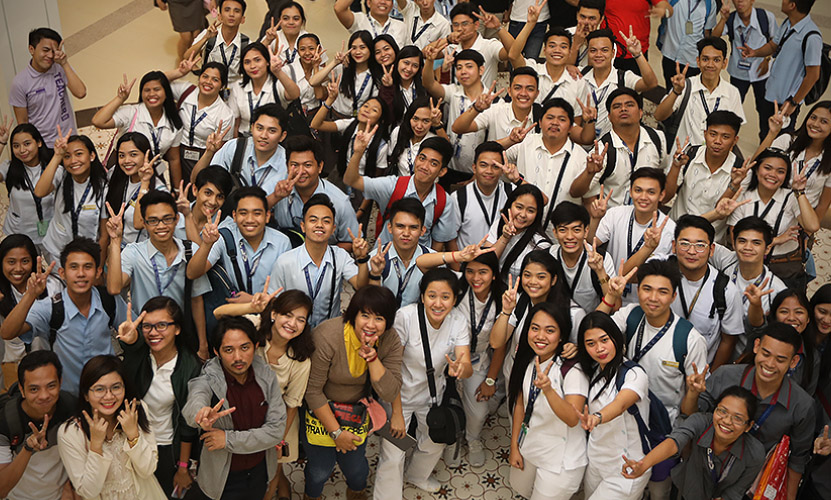
With the full implementation of Republic Act No 10931 or the Free Higher Education (FHE) Act set to begin, Senator Win Gatchalian is expecting an increase in the number of quality college graduates armed with the skills and knowledge needed to make a big impact on inclusive economic growth and nation-building.
“At the end of the day what we want to see is high quality college graduates. We don’t want to create what they call, “diploma mill”, or just having many graduating students, thus making it a number scheme. It is important that we produce quality and highly intelligent students – what the country really needs when it comes to the new workforce,” he said in a speech last week during a gathering he hosted for stakeholders in the higher education sector.
Just days after the Commission on Higher Education (CHED) announced that the Implementing Rules and Regulations (IRR) of RA 10931 were ready for release, Gatchalian hosted the leadership of State Universities and Colleges (SUCs), Local Universities and Colleges (LUCs), and the Technical Vocational Institutions (TVIs) from the National Capital Region and areas across the country at the Free Higher Education Consultative Meeting in Manila.
During the meeting, which was held to address potential issues concerning the implementation of the law, CHED Officer-in-Charge Commissioner Popoy De Vera led a discussion on the salient points of the IRR.
Also included in the almost one hundred participant-attendees are officials from the Philippine Association of State Universities and Colleges (PASUC), the Association of Local Colleges and Universities (ALCU), the Unified Student Financial Assistance System for Tertiary Education (UniFAST), and representatives from the Technical Education and Skills Development Authority (TESDA).
“In my travels to the provinces, I am getting a lot of questions and unanswered issues. That is why we took it upon ourselves to organize this informal gathering of learning institutions, so that we can address all issues and concerns directly with the implementer,” he said, referring to CHED, the lead implementing agency of the FHE program.
Looking back at the history of FHE in Congress, Gatchalian recalled the difficulty he and his fellow advocates went through, from crafting the bill all the way to the Senate deliberations where it received “very heavy resistance” from some groups.
“We do not want our efforts to be wasted, much more the huge budget that our government is allocating for our youth,” he said, noting that the Php 40 billion appropriated for FHE under the 2018 makes it the second most well-funded social service program, after the PHP 60 billion Pantawid Pamilyang Pilipino Program (4Ps).
Meanwhile, De Vera credited the swift passage of RA 10931 – enacted into law in August of last year – to the political will of present political leaders, stressing all help is needed from its stakeholders in making its implementation successful.
“What we are having is historic because no developing country has attempted to make public education free. We are the first one. We don’t have a template. We have to evolve on our own,” the acting CHED chair said.
At the same time Gatchalian, who serves as Vice-Chairperson of the Senate Committee on Education, said he will continue holding consultations with SUCs, LUCs and TVIs across the country to identify potential challenges they may rise from the implementation of the law.
“I am part of the education committee which will be doing the oversight over this law. I also want to hear these issues and concerns so if there are anything that we can do in the Senate – in the legislature – we can address that in our own capacity,” he said.


